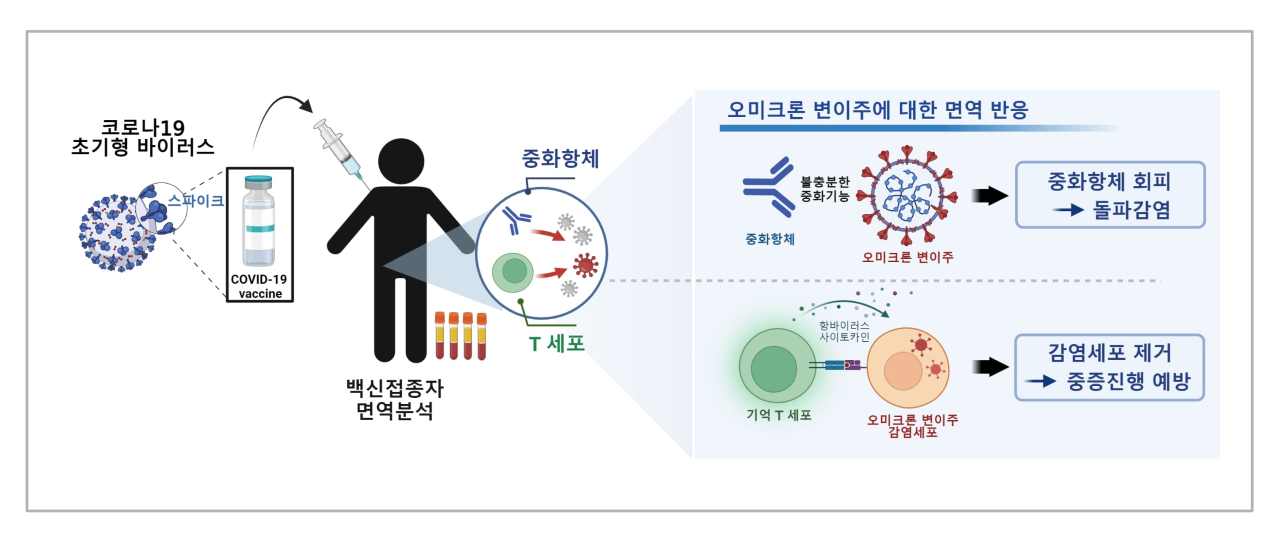 |
The graphic shows the mechanism of antivirus immune response of memory T-cells against Omicron variant. (Institute for Basic Science) |
South Korean researchers have added new evidence that mRNA vaccinations can prevent severe symptoms in breakthrough infections of omicron and other variants of the coronavirus that causes COVID-19, the Institute for Basic Science said Monday.
The research team led by Shin Eui-cheol, professor at KAIST graduate school of medical science and engineering, has analyzed the bloodwork of participants who received mRNA vaccine and those who were vaccinated after contracting COVID-19.
The team found out that memory T-cell induced by vaccines showed immune responses against omicron and other variants in both cases.
IBS said even though the vaccines were developed to tackle the early stages of the pandemic, T-cell immune response in omicron cases was 80 to 90 percent effective compared to prior variants. Consequently, it also allows patients with breakthrough infections to suffer only mild to moderate symptoms and quickly recover.
“Data showed that the immune response is much stronger in the case of people who received vaccine after catching COVID-19. So people should get vaccinated soon as they recover from the virus,” it added.
Pointing out that memory T-cells are polyfunctional, IBS said they provide a more effective immune response to a pathogen than T-cells with a single function. In particular, memory T-cells selectively eliminate virus-infected cells and prevent further proliferation.
“It has become more important to manage critically ill COVID-19 patients than to reduce the number of new patients,” said Chung Min-kyung, researcher at the IBS’ center for study of emerging and re-emerging viruses.
“Our paper expands the immune response analysis beyond studies of neutralizing antibodies,” Chung added, defining neutralizing antibodies as those responsible for blocking the viral infection itself.
Shin’s team published the memory T-cell immunity paper in Nature Microbiology on May 17.
Aside from Shin’s team, other research participants include teams led by Song Jun-young and Noh Ji-yoon, professors at Korea University, Chung Hye-won, professor at Chungbuk National University, and Park Su-hyung, a KAIST professor.
By Byun Hye-jin (
hyejin2@heraldcorp.com)





![[Herald Interview] 'Trump will use tariffs as first line of defense for American manufacturing'](http://res.heraldm.com/phpwas/restmb_idxmake.php?idx=644&simg=/content/image/2024/11/26/20241126050017_0.jpg)


![[Herald Review] 'Gangnam B-Side' combines social realism with masterful suspense, performance](http://res.heraldm.com/phpwas/restmb_idxmake.php?idx=644&simg=/content/image/2024/11/25/20241125050072_0.jpg)